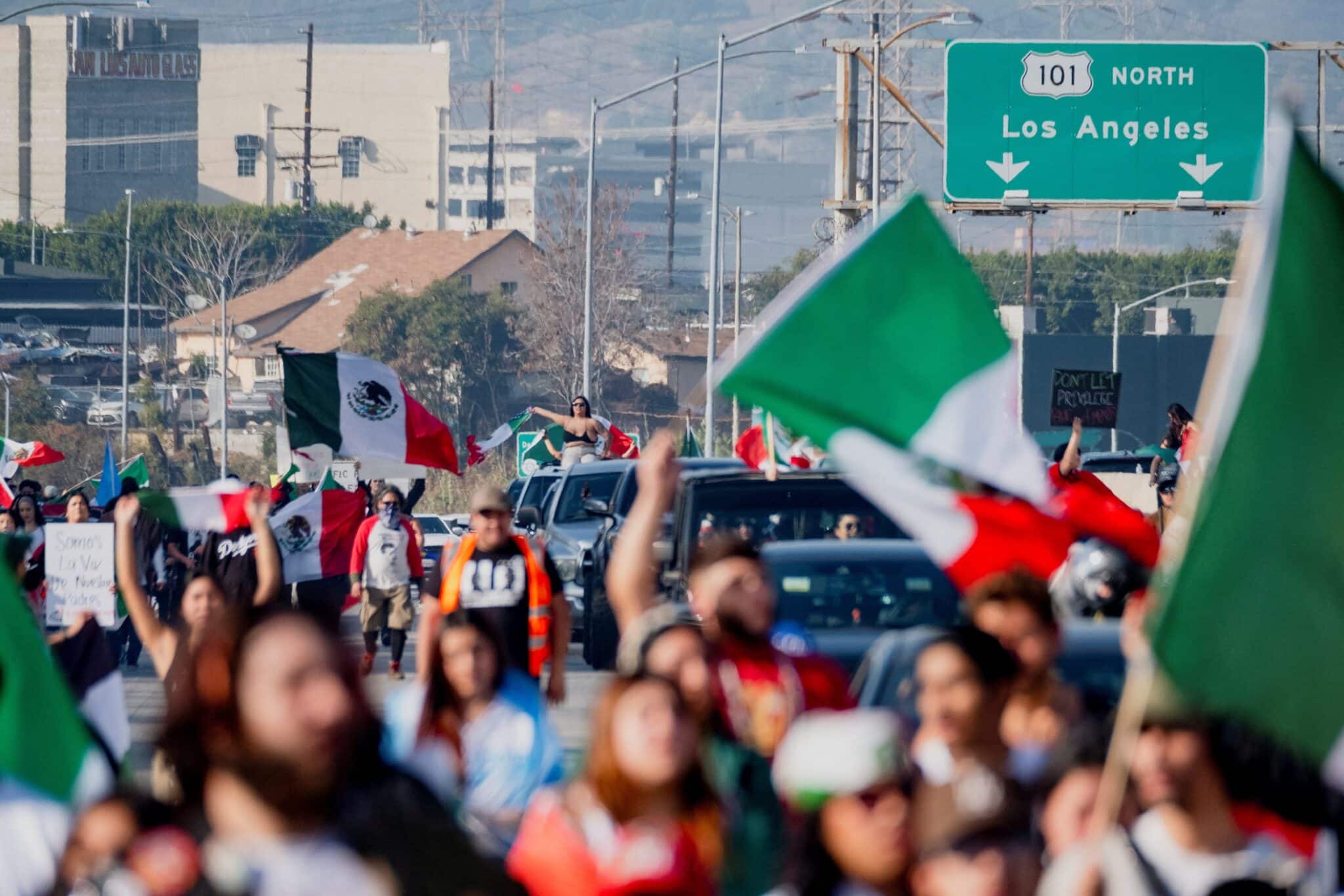In our world of differing political opinions, this Franciscan brother asks you to consider what St. Francis would do to cultivate respect and understanding.
When one of my students at St. Francis College in Brooklyn, New York, suggested the teachings of St. Francis were more relevant today than the 13th century, I immediately dismissed her. How could someone’s philosophies be more relevant 800 years after they lived?
I have since come to see she was correct. We need St. Francis more than ever—especially with regard to politics. With the polarizing election days away, the importance of being a peacemaker has never been greater than in today’s partisan political climate.
St. Francis was surrounded by conflict: Muslims vs. Christians, Assisi vs. Perugia. It was seeing his friends bloodied on the battlefield that started him on his journey as a peacemaker. Today, there is political conflict with several hot-button topics, including immigration, abortion, climate change, and inflation. The mention of any of these can result in encounters that tear down relationships.
While I have strong feelings about political topics, I have intentionally chosen to put them aside in the interest of having peace in my heart. My affiliation is the “Franciscan Party.” My platform includes being a peacemaker and seeing the other not as an enemy from a rival affiliation—but as brother and sister.
Seeking to Understand
When trying to be a peacemaker, I look to the Peace Prayer. One of its key lines is, “Grant that I may not so much seek . . . to be understood as to understand.” Instead of trying to win the argument and prove I am right, I find it calming to see through the lens of the other.
An acquaintance saw a lifelong friendship dissolve because of political differences. He could not get over why his friend voted a certain way. When I inquired why his friend made that choice, he responded, “I don’t care.” By not seeking to understand, the relationship was lost.
Naturally, when asking someone for the rationality behind their political views, we may not agree with the answer. Therefore, I have found it imperative to respect the other person’s values, morals, and fears. The latter may be surprising; however, some people base their political preferences on fears. Maybe they are afraid of losing their financial security or people crossing our borders or perhaps another terrorist attack.
Separating Person from Behavior
A few years ago, I criticized a political figure about a decision she made. Someone I know perceived I was being demeaning and disdaining of women. This was clearly not my intention; I would have given the same criticism to any politician, regardless of gender. This incident reiterated the importance of focusing on behavior, not the person, when expressing a political opinion.
It is perfectly reasonable to disagree with a position on an issue a politician has taken. However, to start attacking a public servant in conversation or social media by using terms such as “racist,” “misogynist,” or “idiot” invites conflict. In his landmark book, In the Footsteps of Francis and Clare, Roch Niemier, OFM, writes, “Never did he [Francis] act with superiority to the unbeliever. . . . Never did any word to allusion offensive to Islam appear in his writings, a rarity in his day, even among saints.”
St. Francis of Assisi saw the good in everyone. I suspect that, if he were alive and asked his choice for president, Francis would respond with the best attribute of each candidate. When I come across a politician whom I find difficult to like, I look for the good in them, recalling that she or he is made in the image and likeness of God.The Gospel tells me to love everyone—even if it hurts.
Turning Hatred into Forgiveness
I have heard people comment that they hate a politician and could sense the hatred that had built up inside them. As I learned in novitiate, the exterior reflects the interior.
When starting formation to become a Franciscan brother after a lengthy career in pharmaceuticals, I discovered hatred had built up inside me. The solution? Franciscan solitude in front of the Blessed Sacrament. The result? Forgiveness and hatred transformed into divine peace and love in my heart. Thomas of Celano, Francis’ first biographer, stated, “He would spend the night alone praying, in abandoned churches and in deserted places where . . . he overcame his soul’s many fears and anxieties.” If there is hatred toward a politician, time in solitude can transform these feelings. Who knows: God may be using that person to teach about forgiveness!
Offering Franciscan Hospitality
People of all political affiliations need to know they are welcome. At St. Francis College in New York, we clearly demonstrate this respect.
Warm hospitality exists at all 22 schools that make up the Association of Franciscan Colleges and Universities (AFCU). According to Debi Haug, AFCU’s executive director for mission, “Our Franciscan charism and the way we live out our Franciscan tenants of peacemaking and living in community are practiced on all of our campuses. It is no accident we were not making headlines for fighting and unruly conduct. Earnest discussion takes place regularly rooted in Franciscan love in a peaceful, open-minded, and, more importantly, open-hearted manner. Not everyone agrees, but we all have a voice.”
Moving Forward
For me, the most important day of this election cycle is not Tuesday, November 5, but the day the results are finalized and a winner is declared. This is when my prayers for the president—regardless of my choice—will begin.
My dream is, during the next four years, our nation will reunite. More than one person has told me this will take a miracle. Maybe if I can give up the need to be right and instead be a peacemaker, I can help create this miracle.









2 thoughts on “I’d Like to Say: It’s Time to Act Like St. Francis ”
It is not often that I can read something that I completely agree with and need to hear. Brother Greg, you have done it again.
Yes, St. Francis’ peacemaking model is still very relevant today. Let’s hang on to that dream of unity (with respect for diversity), though I am not holding my breath for it.